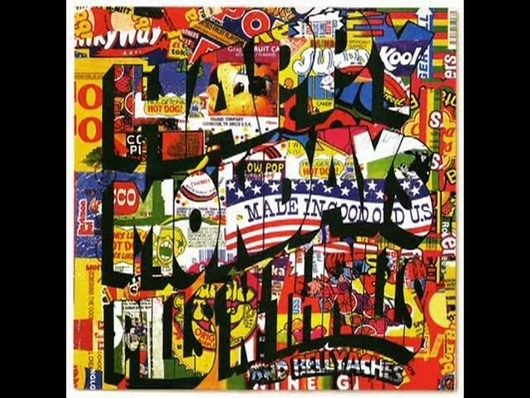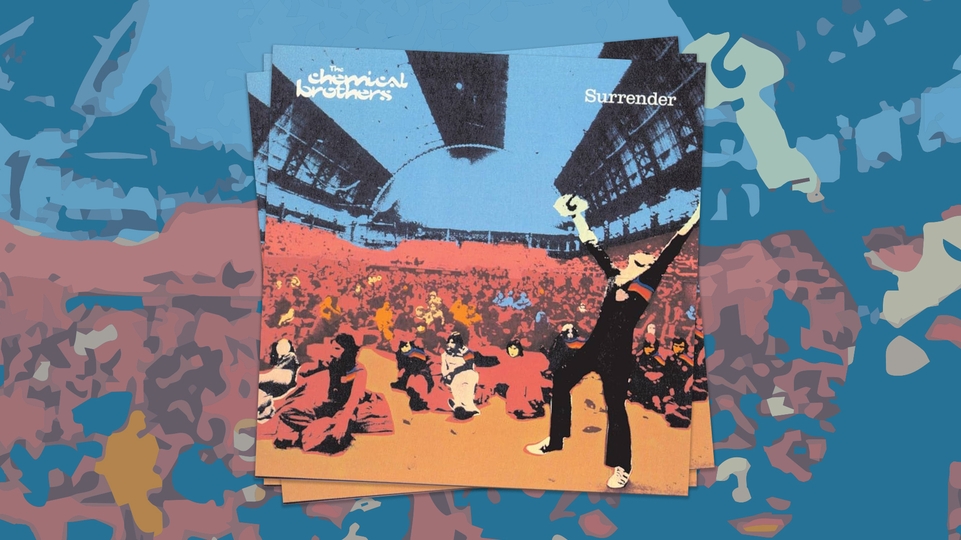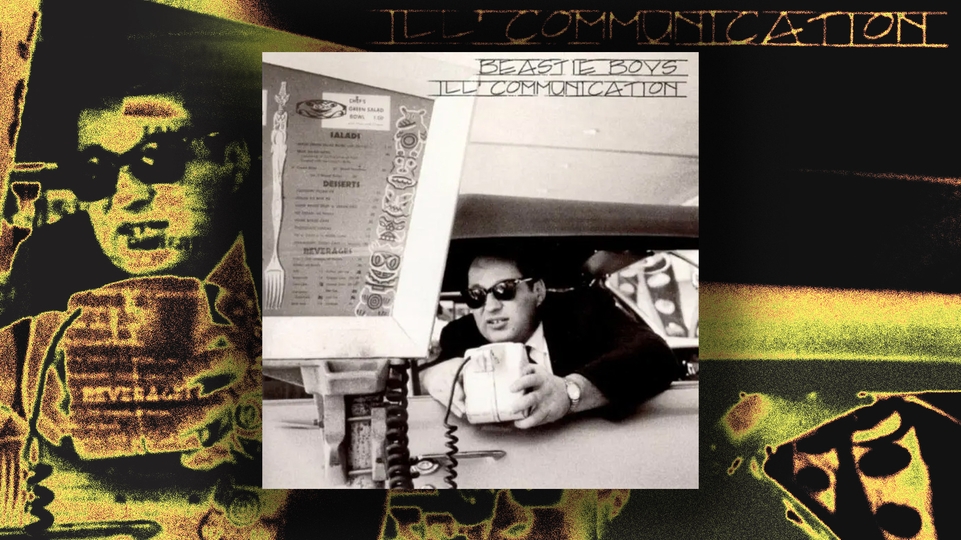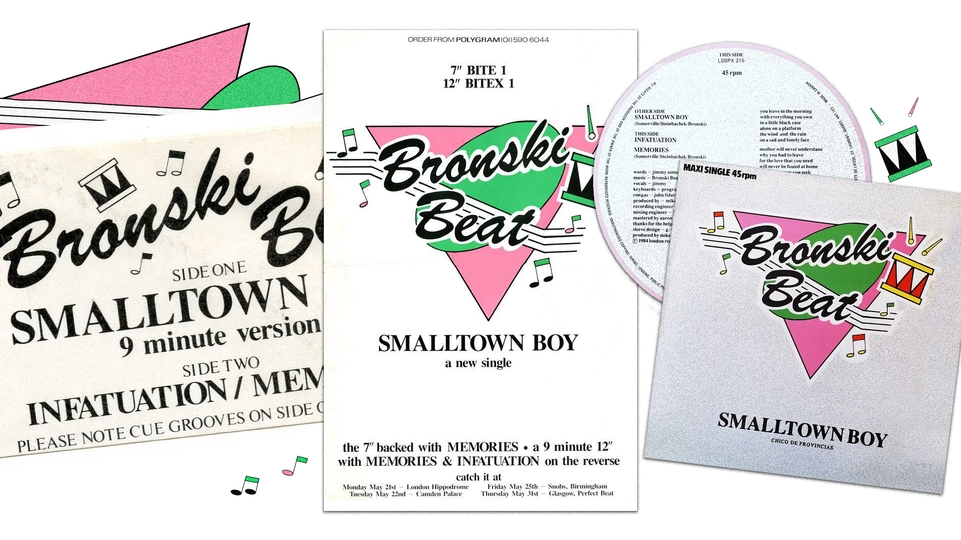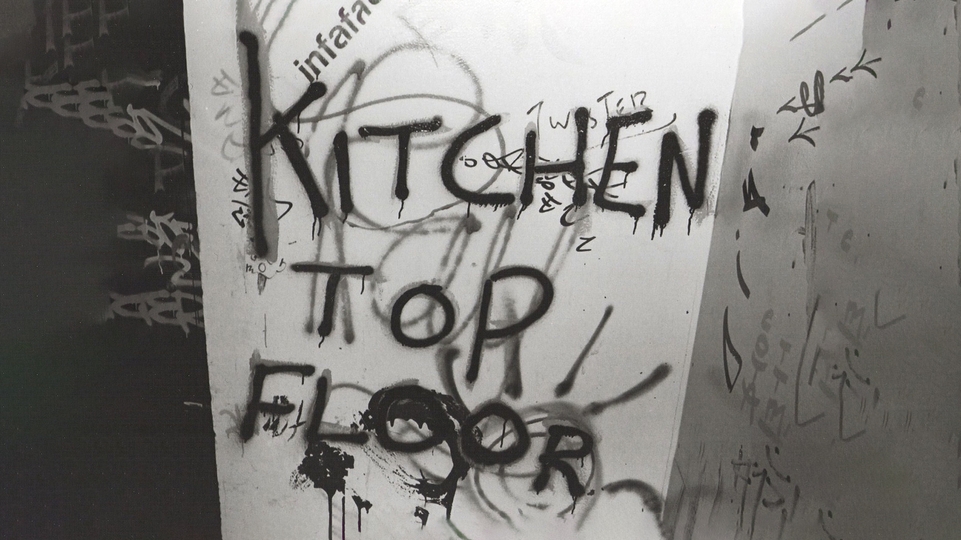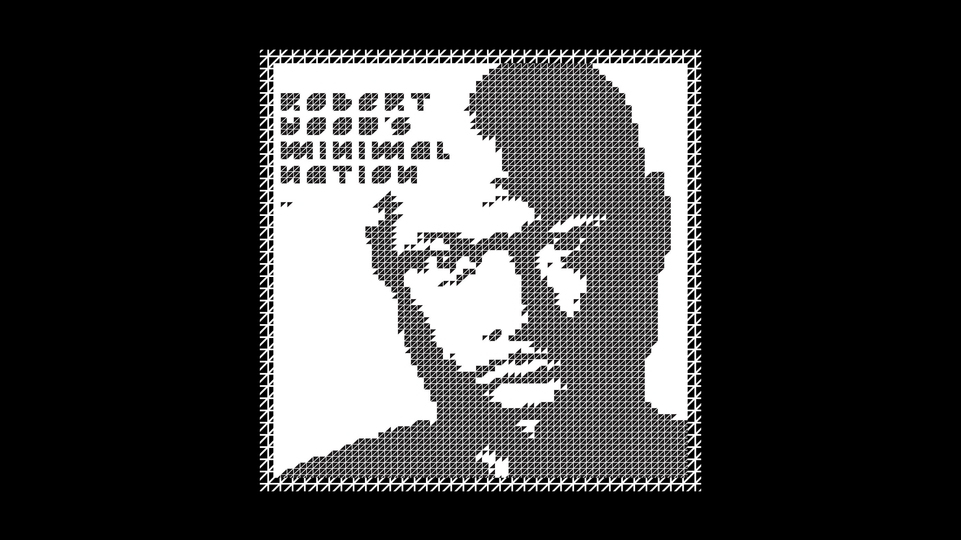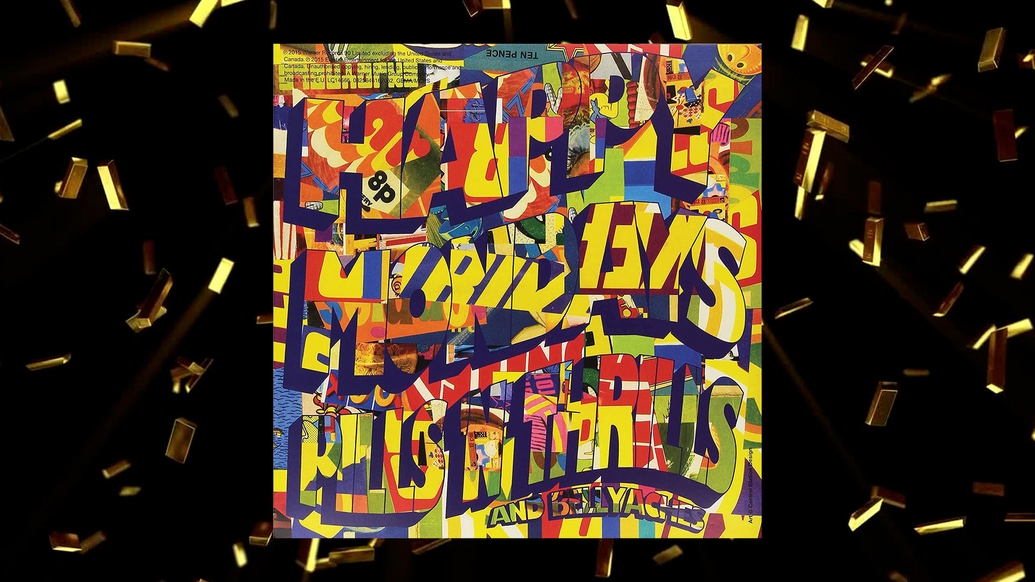
How Happy Mondays' ‘Pills ’N’ Thrills And Bellyaches’ became the pinnacle of the Madchester sound
Manchester's Happy Mondays drew influence from funk, house, and psychedelia to pioneer the Madchester sound. Here, Ben Cardew explores the lasting legacy of their 1990 album, ‘Pills ’N’ Thrills And Bellyaches’, which dropped in the midst of the Baggy takeover, and defined an era
Baggy/Madchester (the terms are largely interchangeable) is one of the most globally under-appreciated musical genres to have ever emerged from the UK’s musical underground. And the Happy Mondays are arguably the ultimate baggy band. Now on their third(ish) reunion, the Mondays’ key duo of Shaun Ryder (vocals) and Mark “Bez” Berry (maracas and the all-important vibes) are perhaps best known in their native UK for a trail of recent reality TV appearances and the study of UFOlogy, rather than the band’s impeccable first four albums. (The less said about their fifth, 2007’s bloodless and squalling ‘Uncle Dysfunktional’ — the only LP released after their initial split in 1997 — the better.)
In some ways, the Mondays are themselves responsible for their own critical demise. In early 1992, Bez made some horribly homophobic comments to the NME in an interview to promote their single ‘Judge Fudge’, which soured the reputation of a band who had once seemed to stand for the unity of the dancefloor. (Happy Mondays have since distanced themselves from these comments.) And the album that followed the same year, ‘Yes Please!’, was a massive critical and commercial flop (although some maintain it is a lost classic). When the band eventually fell apart amid crippling drug addictions, there was a feeling that their time had come.
And yet, at their considerable best, the Happy Mondays, much like baggy itself, could soar. Baggy saw rock and dance music fuse under the influence of acid house, ecstasy, and DJ culture, producing a string of singular classics from bands like Primal Scream, The Stone Roses, and The Charlatans. It was rock music that sounded genuinely new, which took an interest in what was happening musically right now, rather than retreating back to the 1970s in a heap of heroin and rain, like grunge would do a few years later. This was rock music dreamed up in clubs and raves, specifically for clubs and raves — indie and dance coming together as natural bedfellows rather than in some pained laboratory experiment.
The Happy Mondays and their crowning-glory third album, ‘Pills ’N’ Thrills And Bellyaches’, epitomised this. The Mondays had come together in the early ’80s essentially to give six ruffian-ish, charming ne’er-do-wells from Greater Manchester something to do with their days, with their early records exhibiting a kind of brilliantly scrappy, psychedelic hooligan funk. After stumbling across house music, Manchester’s iconic Haçienda club, and ecstasy in the mid 1980s, however, the Mondays’ output changed, as the band started to incorporate elements of dance music and DJ culture into their music, with the goal, seemingly, of making tunes that they would like to dance to, during those long Haçienda nights.
For all that, the Happy Mondays themselves rarely made music that bore the typical traces of baggy: the ‘Funky Drummer’ beat that dominated the Madchester sound is nowhere to be found on their records, for example, and they didn’t make a prominent use of sampling. (For that, see the peerless remixes of ‘Wrote For Luck’ they put out in 1989.) What the Mondays did instead was take the influences gleaned from dance music — the outside producers, the DJs, the loops — and put them into their own rock setup of guitar, bass, drums, and keyboards, producing an irresistible sunshine disco on ‘Pills ’N’ Thrills And Bellyaches’ that had more in common with the radiant funk of Chicago house than with the melancholic grandeur of The Smiths.
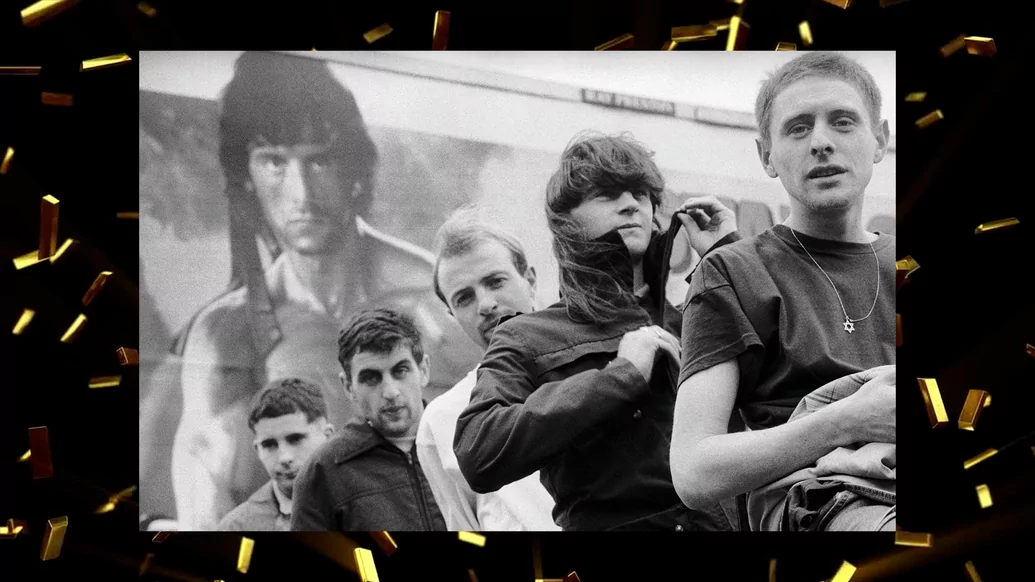
It was rock music that sounded genuinely new, which took an interest in what was happening musically right now, rather than retreating back to the 1970s in a heap of heroin and rain, like grunge would do a few years later
To do so, the band brought in two key collaborators to produce what would become their third album (after 1987’s ‘Squirrel And G-Man...’ and 1988’s ‘Bummed’): Paul Oakenfold, then (and now) one of the UK’s leading DJs and an acid house evangelist, and fledgling record producer/engineer Steve Osborne. The duo had history with the Mondays, having worked together on Oakenfold’s immaculate ‘Think About The Future’ mix of ‘Wrote For Luck’ in 1989; one year later, the Mondays asked them to produce ‘Step On’, a cover of ‘He’s Gonna Step On You Again’ by South African-born singer John Kongos. The song was initially intended for a 40th anniversary compilation for the band’s US label, Elektra, but was snaffled away for a single release in April 1990, when it promptly became their biggest hit.
All the same, asking Oakenfold and Osborne — a duo with minimal studio experience — to produce the band’s new, and by now eagerly awaited, album was a risk. But it was a risk that paid off spectacularly. ‘Step On’ may have started life as a one-off single, but the production techniques and resulting sound that Oakenfold and Osborne hit on for the song continued flawlessly into ‘Pills ’N’ Thrills And Bellyaches’. Oakenfold told Uncut in 2019 that he was “looking for this certain sound” from the Happy Mondays, and to do that he had to upend their recording techniques, recording the band in the same way most dance music producers construct their songs, from the rhythm upward.
“Traditionally, when you record a band, you set them up, mic them up, and they play as a band,” Oakenfold told Uncut. “We didn’t do that. We recorded them individually: first Gaz [Whelan on drums], then Paul [Ryder, Shaun’s brother, who recently passed away at age 58] on bass, then Mark [Day] on guitar, then the keyboards [from Paul Davis], and finally Shaun would come, very late in the evening, to do his vocals. So we approached it like a DJ makes music. You start with the rhythm and work up. That’s the difference. That’s why it had that unique sound.”
Oakenfold would apparently use drum loops in the recording, bringing in old funk and soul records, as well as new hip-hop. But these were employed as reference points for Whelan, rather than direct samples, while Osborne would add drum machines to Whelan’s beats to give them subtle shades of machine funk. “I got Gaz to play the basic groove,” Osborne told Sound On Sound. “Then recorded onto multitrack tape, bounced it down to stereo, and stuck it in the S1000 [sampler]. I’d get him to do other bits as well, and maybe loop other bits and stick them in the sampler as well and then program it. I added a 909 with it. If you listen to it, there’s a 909 kick pushing against it. There are two grooves sort of pushing against each other.”
The result is guitar music with an incredible funked-up glide. ‘Step On’ starts off with a triumphant keyboard riff, reminiscent of the best Italo house; Whelan’s drums kick in like a James Brown revue after two days of pills and sunshine, Paul Ryder’s bass woozes around as if trapped in warm honey, and Mark Day adds a wonderfully elastic guitar riff that rushes up the spine like the Happy Mondays’ dancefloor poisons. To this, Ryder added a vocal gloriously enhanced by amphetamine babble, with lines like ‘call the cops’ and ‘you’re twisting my melon, man’ becoming instant catchphrases for the baggy horde. An admirably gutsy backing vocal from Manchester soul singer Rowetta lifts the song even higher.
‘Step On’ is, on the face of it, not really dance music as we know it, not in the sense of electronic sounds, loops, samples, or even in the New Order dance-rock mode of drum machines and synths meeting electric guitars and bass. But you would have to be clinically fun free not to feel inspired to shake a limb — or a maraca, Bez-style — to its irresistible groove. The same applies as a whole to ‘Pills ’N’ Thrills And Bellyaches’, which the band recorded in LA in summer 1990, against a background of heavy partying. Again, Oakenfold and Osborne applied their process of recording from the rhythm upwards, which resulted in a brilliant continuation of the ‘Step On’ sound across 10 basically perfect tracks.
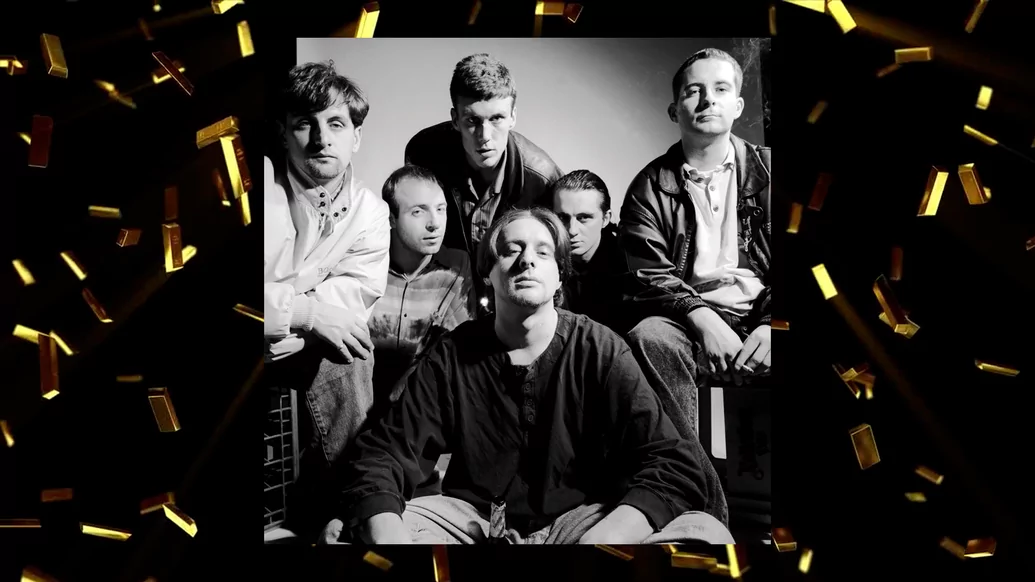
The question ‘Pills ’N’ Thrills And Bellyaches’ posed was not so much 'Why would you mix rock and dance music?' The question, really, was 'Why wouldn’t you?'
In many ways, ‘Pills ’N’ Thrills And Bellyaches’ is not as obviously innovative as Primal Scream’s epochal ‘Screamadelica’ album, which brought full-on remix culture into the rock music recording process; or New Order’s Balearic masterpiece ‘Technique’. But neither of those records — brilliant as they are — sounded as wonderfully effortless as ‘Pills ’N’ Thrills And Bellyaches’. Songs like ‘Kinky Afro’, ‘God’s Cop’, and ‘Loose Fit’ obliterated the genre distinctions between rock, funk, soul, and dance music, making it sound perfectly natural for a band raised in rainy Manchester to create sunshine funk music. The question ‘Pills ’N’ Thrills And Bellyaches’ posed was not so much “Why would you mix rock and dance music?” The question, really, was “Why wouldn’t you?” And for a good year or so, the UK’s music scene followed suit.
This effortlessness is perhaps why the Happy Mondays remain so underrated. Whatever their later struggles with addiction, at this stage in their career the Happy Mondays were the polar opposite of the tortured artist stereotype. They made it all sound so easy, in fact, although the fact that so few bands since have managed to sound like the Happy Mondays suggests otherwise. Madchester also-rans Northside tried; more recently Danish punks Iceage have earned the comparison; but no one has ever managed to slink like the Happy Mondays slunk.
So the Happy Mondays’ reputation is not what it should be; and they never made the impression outside the UK they deserved. But maybe that doesn’t matter. Because the Mondays themselves rarely thought about the past or cared about the future — they were a band for the glorious moment, a celebration of the right here, right now that should echo with anyone who has ever enjoyed a life-changing night out on the dancefloor.

